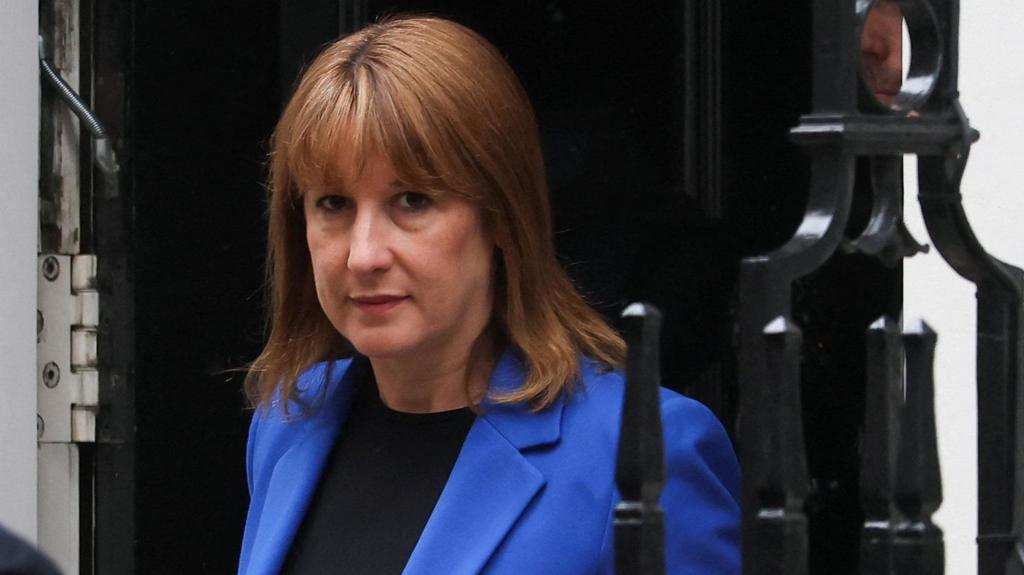Long-term borrowing costs for the UK government have surged to levels unseen since 1998, intensifying pressure on the Chancellor ahead of the upcoming Budget.
The yield on 30-year government bonds, a key indicator of borrowing expenses, climbed to 5.72%, signifying a more expensive environment for government borrowing.
Amid growing concerns about the state of public finances, expectations are mounting that Chancellor Rachel Reeves will introduce tax increases in the Budget later this year to adhere to established borrowing and spending guidelines.
Currency markets also reflected the strain, with the pound sterling depreciating by over 1% against the dollar on Tuesday.
Sterling’s decline against the dollar reached $1.3388, marking its lowest valuation against the US currency since August 7.
The rise in borrowing costs was not confined to the UK, as yields on 30-year bonds from Germany, France, and the Netherlands also reached their highest points since 2011.
In the United States, yields on 30-year Treasury bonds rose to their highest level in over a month.
Several factors have contributed to the increase in government borrowing costs globally, including geopolitical tensions, US President Donald Trump’s trade policies, and the impending confidence vote in the French government.
World Trade Organisation head Ngozi Okonjo-Iweala stated that the world is currently “experiencing the largest disruption to global trade rules,” characterizing it as “unprecedented in the past 80 years.”
As she commenced her second term as director general, Ms. Okonjo-Iweala also told Reuters that the full impact of Trump’s tariffs may not be felt until next year, as many businesses had stockpiled goods before their implementation.
“Possibly down the line, we’ll begin to see some other impacts as the goods in the warehouses are exhausted and impacts begin to come in but we’ll see next year,” she said.
“We still anticipate some growth.”
Susannah Streeter, head of money and markets at Hargreaves Lansdown, noted that the Chancellor faces “highly difficult choices” in the Budget and has been “dealt a warning” by investors.
“They are selling off UK government debt, clearly concerned that the government may be losing its grip on the public finances,” she said.
Labour’s manifesto pledge not to raise taxes such as income tax, VAT, or national insurance on “working people” has fueled speculation about potential tax increases Reeves might implement in the autumn Budget.
One suggested option is extending the freeze on income tax thresholds, which is currently set to end in 2028.
This “stealth tax” approach results in more individuals being subject to higher tax rates as their salaries increase over time.
Reports also indicate that Reeves is considering reforms to property taxes.
“With so many options for raising taxes being bandied about during the summer, there appears to be concern that the decisions made might not be sufficiently thought through,” said Ms. Streeter.
“The worry isn’t just that government coffers won’t be replenished, but that they will be filled at the expense of growth, leading to a vicious circle emerging.”
On Monday, the government announced a partial reshuffle, with Darren Jones, formerly Reeves’s deputy, being given a key No 10 role by the prime minister.
The changes are focused on beefing up the economic know-how in Downing Street. Baroness Shafik, a former deputy governor of the Bank of England, has been named at Keir Starmer’s new chief economic adviser.
The moves are a recognition that the upcoming autumn’s Budget will be a defining moment in this Labour government.
Governments borrow money from investors by selling bonds – which is a loan the government promises to pay back at the end of an agreed time.
The yield on 30-year UK government bonds – known as gilts – has been rising for some months, and this makes it more expensive for the government to borrow money due to higher interest payments.
The government’s official forecaster, the Office for Budget Responsibility (OBR), takes borrowing costs into account when looking at whether the chancellor is meeting her self-imposed fiscal rules.
When she became chancellor, Reeves set out two rules on government borrowing, which she has repeatedly said are “non-negotiable”. These were:
Part of the reason Reeves is under pressure is that her financial buffer to stick to these rules is a relatively slim £10bn. The chancellor recently refused to rule out tax rises after disappointing data on economic growth.
On Tuesday, a spokesperson for Starmer said the government’s “iron-clad commitment to our robust fiscal rules remains”, adding it had made the necessary decisions to “stabilise the public finances”.
But shadow chancellor Mel Stride said the latest market movements were “another economic disaster from Rachel Reeves – and a clear vote of no confidence in Labour from the markets”.
“With more tax rises on the horizon, the economy is now in a precarious position,” he added.
There has been a wide range of forecasts for how much money Reeves might need to raise in the Budget to meet her rules.
One factor that will influence this is the borrowing costs facing the government.
When the OBR makes makes its forecasts for government debt it looks at yields on all bonds.
Paul Dales, chief UK economist at Capital Economics, said concerns about the path of UK inflation and interest rates, combined with global issues, were pushing UK government borrowing costs up.
In addition, he added that pension funds were also not buying as much long-term government debt due to the change in recent years from defined-benefit to defined-contribution schemes.
Mr. Dales suggested Reeves would need to raise between £18bn and £28bn in the Budget to adhere to her fiscal rules and maintain her £10bn buffer.
Households and banks “will probably feel the brunt of the higher taxes”, he said.

